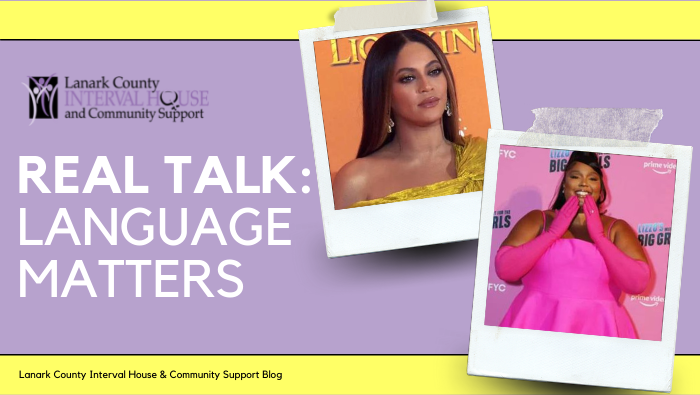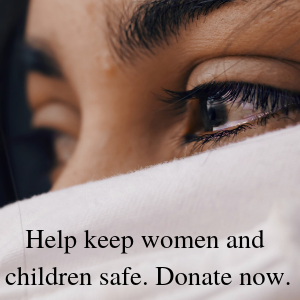Language is one of the most powerful tools we have. It’s essential for creating an environment where everyone feels welcome and included. Historically, language has excluded so many. Language has been used to discriminate and marginalize individuals and groups because of their culture, race and ethnicity, gender, sexual orientation, age, disability, socioeconomic status, appearance and more.
Exclusionary language, however, is not a historical issue: recently exclusive, every day language has come to the for forefront of global conversations after Lizzo released a track featuring an ableist slur in June. Less than two months later, just last week, a track on Beyonce’s latest album was released using the same slur. After lots of discussion and public outcry, the lyrics on both tracks were changed.
 In a BBC poll, the term used by Lizzo and Beyonce was found to be the second most offensive term for disabled people in the UK. Responses to the recent controversy have been mixed: British and Australian listeners are deeply offended by the word choice, whereas North American listeners do not take the same offense to the word. Our content should not hurt people. Debating grammatical nuances, origins of terms or intent is minimizing to people’s lived experiences. When we ignore the harm words cause, we allow the oppression to continue.
In a BBC poll, the term used by Lizzo and Beyonce was found to be the second most offensive term for disabled people in the UK. Responses to the recent controversy have been mixed: British and Australian listeners are deeply offended by the word choice, whereas North American listeners do not take the same offense to the word. Our content should not hurt people. Debating grammatical nuances, origins of terms or intent is minimizing to people’s lived experiences. When we ignore the harm words cause, we allow the oppression to continue.
While Lizzo and Beyonce may not have intended to be hurtful with their words. So many of these words and phrases are so entrenched in the English language we don’t think Even with the best intentions, we can all unknowingly say things with the power to harm and well-intentioned word choices can still inflict pain. It’s not up to us to judge if the word harms, but to believe the people who tell us it does and make a change. These lyrical controversies have made it obvious it’s time offensive language, whether ableist or sexist, to be retired from the everyday vernacular. Allowing language that is ableist, sexist, racist or homophobic to continue allows societally constructed ideas of the inferior to be perpetuated. Language matters, it’s time to reframe the way we speak.
Making change can be hard, but, at the end of the day, using a different word is a small price to pay in exchange for fostering inclusivity and safety in our community. Language evolves and we should take the opportunity to refresh our vocabulary, rather than including phrases from a pre-established lexicon. Embrace the opportunity: here are some tips to making your language more inclusive:
Update Your Language
No one is asking you to be perfect but take a hard look at the words you are using and how you are using them. Many once-common words and phrases are shocking today, think how many words we still use that came from those same, offensive origins. Once you get thinking about it, you’ll notice more and more! If you need a little help, check out these lists of Phrases to Stop Using or Racist Words to Stop Saying
Updating your language also means calling it what it is. We collectively need to leave behind the phrase “non-consensual sex” when we really mean rape. We need to stop describing a woman’s death as a murder or a homicide and start using femicide.
Small tweaks to our language go a long way in increasing overall equality.
Avoid Using Gendered, Racist or Ableist Terms as Insults

Photo from Duke University’s “You Don’t Say” Campaign
We don’t always realise the language we use hurts, degrades, or objectifies those around us. A big part of smashing the patriarchy begins with challenging oppressive language systems.
Totally neutral, even positive words are known to devolve into an insult against women. Words used to describe women are used as insults implying weakness in men. Words traditionally used to stigmatize mental health issues (“crazy”, “psycho”, “bipolar”, etc.) are used as metaphors and insults for everyday behaviour when they are, in fact, descriptors of real things actual people deal with daily.
A good rule of thumb: if the word is, has been, or can be used to describe a marginalized group in any way, it should not be used as an insult.
In the book Wordslut: A Feminist Guide to Taking Back the English Language, author Amanda Montell said the first step we can take to reduce harm caused by gendered insults is to simply avoid using them abusively. That is, to only use them in a positive context. Alternatively, we can give them up altogether in favour of something more creative, inclusive, and relevant (villainous snake is a great insult for ALL gender identities, for example).
Be Gender Neutral & Avoid Gendered Rebrands
Jennifer Prewitt-Freilino, associate professor at the Rhode Island school of design, conducted a study in which she found that countries with gendered languages experienced higher than average gender inequality. Although English isn’t a gendered language like French or Spanish, we have some deeply ingrained gendered biases within our language.
In Invisible Women: Data Bias for a World Designed for Men, author Caroline Criado Perez writes “Seeing men as the human default is fundamental to the structure of human society.” Our culture and language follow a generic masculine framework where, she explains, “male bias is so firmly embedded in our psyche that even genuinely gender-neutral words [like doctor or actor] are read as male”. We have an unconscious habit of adding male or female identifiers to gender neutral words. Saying “manbun”, “manbag”, “guyliner” etc. implies these things are feminine, and therefore frivolous, and need to be rebranded in a “macho” way. Similarly, there seems to be a rise in the use of terms like “girl boss”, “she-eo”, “mompraneur” which implies these powerful positions are inherently coded as male. The trend may stem from a place of the want for empowerment but ends up perpetuating these sexist ideals by reinforces inaccurate assumptions about gender roles and puts individuals into gendered boxes, limiting what they can do and how they can present themselves.
Avoid using words and phrases that perpetuate gender stereotypes. Words like shrill, bossy, feisty and dramatic are disproportionately used to describe women and rarely used to describe the same emotion in men. Ensure the adjectives you select are neutral.
Keep the Conversation Going
If you hear someone make an offensive comment or joke or use derogatory language, politely tell them. Just like you, they may not realize the origins of the words they are choosing. They may not know how offensive their word choice is. Opening up the conversation is how we are going to make change. The best thing we can do is keep learning. Rupert Murdoch Professor of Language and Communication at the University of Oxford, Deborah Cameron, says “language goes in a more feminist direction when there’s widespread support for feminism, so what we can do is keep fighting for feminism in general and refuse to be silenced.” Try your best, keep learning and if you aren’t sure, ask.
Additional Resources:
Our 16 Days of Activism Video on Changing Your Language
Femicide: How Can We Use the Language from Inside Ottawa Valley featuring OPP Insp. Karuna Padiachi
How Gender-Neutral Language is Developing Around the World
How to Use Gender-Neutral Language and Why It’s Important
Avoid Ableist or Sexist Language Won’t Make Us Less Fun
More on Duke University’s “You Don’t Say” Campaign
https://www.un.org/en/gender-inclusive-language/guidelines.shtml
https://hbr.org/2020/12/why-you-need-to-stop-using-these-words-and-phrases


